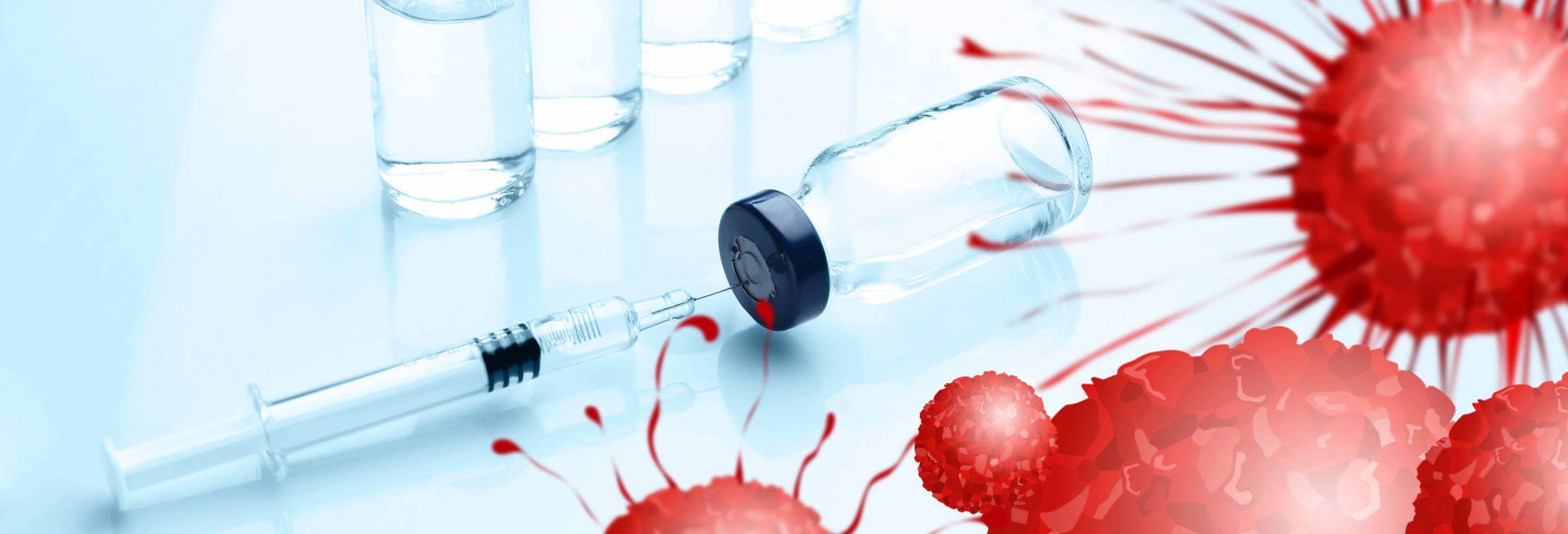In recent years, doctors in developed countries have increasingly used immunotherapy treatment for leukemia. Healthcare professionals in Germany use innovative drugs that help cope with even refractory and relapsing forms of leukemia.
Content
- Types of immunotherapy treatment for leukemia
- When may immunotherapy be prescribed for leukemia treatment?
- How is immunotherapy different from other leukemia treatments?
- How is immunotherapy for leukemia treatment performed?
- Benefits of immunotherapy treatment for leukemia
Types of immunotherapy treatment for leukemia
Immunotherapy is mainly used for acute lymphocytic leukemia. The following two treatment methods are considered standard:
- Monoclonal antibodies: naked or conjugated (bound with chemotherapy drugs)
- CAR T-cell therapy: two drugs have already been approved for leukemia treatment, one of which is used primarily in children and the other in adults
Blinatumomab is an antibody targeting CD19 on leukemia B cells as well as CD3 on T lymphocytes. The drug causes the immune system to attack the tumor.
Inotuzumab ozogamicin is an anti-CD22 antibody. It is an antibody-drug conjugate. It delivers chemotherapy directly to leukemia cells.
CAR T-cell therapy is a treatment method that falls under the category of adoptive cell therapy. Doctors take a patient's immune cells, modify their genome, and then inject them back into the body. The modified cells actively attack the tumor, thereby destroying all accumulations of leukemia cells in the body.
Chronic myeloid leukemia can also sometimes be treated with interferon therapy, but this is an outdated type of treatment.
Various biospecific antibodies, antibody-drug conjugates, immune checkpoint inhibitors, and CAR T-cell therapy may also be used for acute myeloid leukemia as part of clinical trials.
Gemtuzumab ozogamicin is currently the only approved immunotherapy drug for acute leukemia. It is an antibody-drug conjugate used in children.
When may immunotherapy be prescribed for leukemia treatment?
Leukemia is not one disease, but a group of different pathologies that affect the bone marrow. Leukemias are classified as acute, chronic, lymphocytic, and myeloid.
Immunotherapy is used primarily for acute lymphocytic leukemia. It is very effective for this particular disease.
Most immunotherapies for acute myeloid leukemia are still being researched, but in general, they work much less well for this form of the disease and are used primarily in children.
Immunotherapy can also almost never be used for chronic leukemia. Previously, patients were prescribed interferon drugs, but today they are rarely used because more effective drugs have become available, and these are tyrosine kinase inhibitors.
Below are situations when immunotherapy can be prescribed for acute leukemia treatment:
Monoclonal antibodies are used for the treatment of B-cell acute leukemia when chemotherapy fails.
CAR T-cell therapy is used in patients with B-cell acute leukemia that has relapsed or is not responding to other therapy. Brexucabtagene autoleucel is used in adults, while tisagenleucelucel is used in children and young people under 25 years of age.
Gemtuzumab ozogamicin is used for acute myeloid leukemia in children as first-line therapy together with chemotherapy, as well as in cases of disease relapse. It can also be used as a second-line therapy if the primary treatment regimen does not work. In this case, this drug is usually prescribed as monotherapy.
How is immunotherapy different from other leukemia treatments?
Immunotherapy differs in that the drugs used, either standard or made from the patient's own cells, work by enhancing the antitumor immune response. A person's own immunity attacks leukemia cells, sometimes so successfully that it destroys them completely.
How is immunotherapy for leukemia treatment performed?
The process of immunotherapy performance depends on what drugs or technologies are used to enhance the antitumor immune response.
Blinatumomab is administered as an intravenous infusion for 4 consecutive weeks. If the decision is made to repeat the treatment, then doctors take a break for 2 weeks. For at least the first two cycles, a person continuously stays in the hospital because the drug may cause severe side effects. It increases the risk of developing infections by reducing the number of white blood cells.
Inotuzumab ozogamicin is administered once a week as an intravenous infusion. One cycle lasts 3–4 weeks. If the drug works well, several cycles of treatment may be performed.
Gemtuzumab ozogamicin is usually administered as an intravenous infusion twice: in the induction and consolidation phases. But in the treatment of a recurrent tumor, three injections are required at intervals of three days.
Interferon for chronic myeloid leukemia is prescribed subcutaneously, once a day, and is used for many years. Less commonly, the drug may be administered intramuscularly or intravenously.
CAR T-cell therapy takes several weeks because it requires extensive preparation. First, immune cells are obtained from a person using leukapheresis, a procedure that lasts several hours. Blood flows through a tube from the patient's vein into a machine that collects white blood cells. The rest of the blood comes back. Sometimes the procedure may be carried out several times. The resulting cells are then frozen and sent to the laboratory to make the drug.
The patient's T cells are modified, multiplied, and given intravenously after 4 to 8 weeks. The patient will spend at least one week in the hospital because CAR T-cell therapy may cause complications, including cytokine release syndrome and infectious complications. If side effects develop, the patient should be provided with timely medical care.
Benefits of immunotherapy treatment for leukemia
Immunotherapy is not the primary treatment for leukemia. It is not used for all types of leukemia or for all categories of patients. Most immunotherapy methods are not included in first-line treatment regimens.
However, immunotherapy is helpful in situations where chemotherapy does not work, in aggressive types of lymphoma, and in cases of relapse after primary treatment. CAR T-cell therapy is particularly effective, helping to cure patients even with severe forms of leukemia, recurrent tumors, and a lack of response to chemotherapy.
| Category of patients | Immunotherapy | Chemotherapy | Targeted therapy | Bone marrow transplant |
| Children | 90% | 85% | 70% | 80% |
| Adults | 80% | 70% | 50% | 60% |
You can travel to Germany to undergo leukemia immunotherapy. German specialists successfully use the latest immunotherapeutic methods. In Germany, doctors achieve high success rates even when dealing with severe and prognostically unfavorable forms of leukemia.
You can make an appointment for your treatment at one of the German hospitals through the Booking Health website. The company's website presents the leading clinics and doctors in Germany and shows the cost of medical services. When you make an appointment through Booking Health, prices will be lower for you due to the absence of additional fees for foreign patients. We will help you find the best clinic for immunotherapy treatment for leukemia and organize your trip.
Frequently Asked Questions
Send request for treatmentImmunotherapy for leukemia in children shows an effectiveness of 90% which exceeds the effectiveness of chemotherapy (85%), targeted therapy (70%) and bone marrow transplantation (80%).
In adult patients, immunotherapy provides an effectiveness of 80% exceeding the indicators of chemotherapy (70%), targeted therapy (50%) and bone marrow transplantation (60%).
The exact cost is determined individually depending on the patient's age, type of leukemia, the chosen drug and the duration of the course of treatment.
Choose treatment abroad and you will for sure get the best results!
Authors:
This article was edited by medical experts, board-certified doctors Dr. Nadezhda Ivanisova, and Dr. Bohdan Mykhalniuk. For the treatment of the conditions referred to in the article, you must consult a doctor; the information in the article is not intended for self-medication!
Our editorial policy, which details our commitment to accuracy and transparency, is available here. Click this link to review our policies.
Sources:
Read:
Cancer immunotherapy in Germany
Innovations in the treatment of children leukemia
Top 10 Leading Oncology Hospitals for Cancer Treatment in Germany
Don't know where to start?
Contact Booking Health







